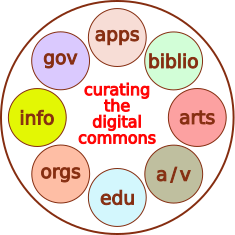Texts:Reflect/Overview: Difference between revisions
Jump to navigation
Jump to search
mNo edit summary |
mNo edit summary |
||
| Line 5: | Line 5: | ||
<p>April Fool's Day, 2025, I came to see clearly why I might write a memoir reflecting on my life experiences. I'd been ambivalent, not prominent enough to sense a public call to memorialize my life, but feeling that I still had a lot to say and that a memoir might be a good way to say it. p. </p> | <p>April Fool's Day, 2025, I came to see clearly why I might write a memoir reflecting on my life experiences. I'd been ambivalent, not prominent enough to sense a public call to memorialize my life, but feeling that I still had a lot to say and that a memoir might be a good way to say it. p. </p> | ||
<h3><i>Appreciations</i> is not . . . .</h3> | |||
* a work of scholarship. I draw on many original sources and scholarly commentaries as I have encountered them over a 70-year span of work. I do not aim to communicate the current, authoritative state of knowledge for what I write about. Instead, I seek to present the exemplarity of those matters, as I've experienced it. Of course, I believe that <i>cultural knowledge</i> has great human value, but I think advancing and acquiring knowledge has garnered excessive esteem in contemporary educational thought and practice | |||
Revision as of 11:33, 24 April 2025



Apps
- My user page
- Notes to myself
- Draft book proposal to Princeton University Press
- Forms for page setup
- Links to apps go here
Introductory Overview to Appreciations
April Fool's Day, 2025, I came to see clearly why I might write a memoir reflecting on my life experiences. I'd been ambivalent, not prominent enough to sense a public call to memorialize my life, but feeling that I still had a lot to say and that a memoir might be a good way to say it. p.
Appreciations is not . . . .
- a work of scholarship. I draw on many original sources and scholarly commentaries as I have encountered them over a 70-year span of work. I do not aim to communicate the current, authoritative state of knowledge for what I write about. Instead, I seek to present the exemplarity of those matters, as I've experienced it. Of course, I believe that cultural knowledge has great human value, but I think advancing and acquiring knowledge has garnered excessive esteem in contemporary educational thought and practice


